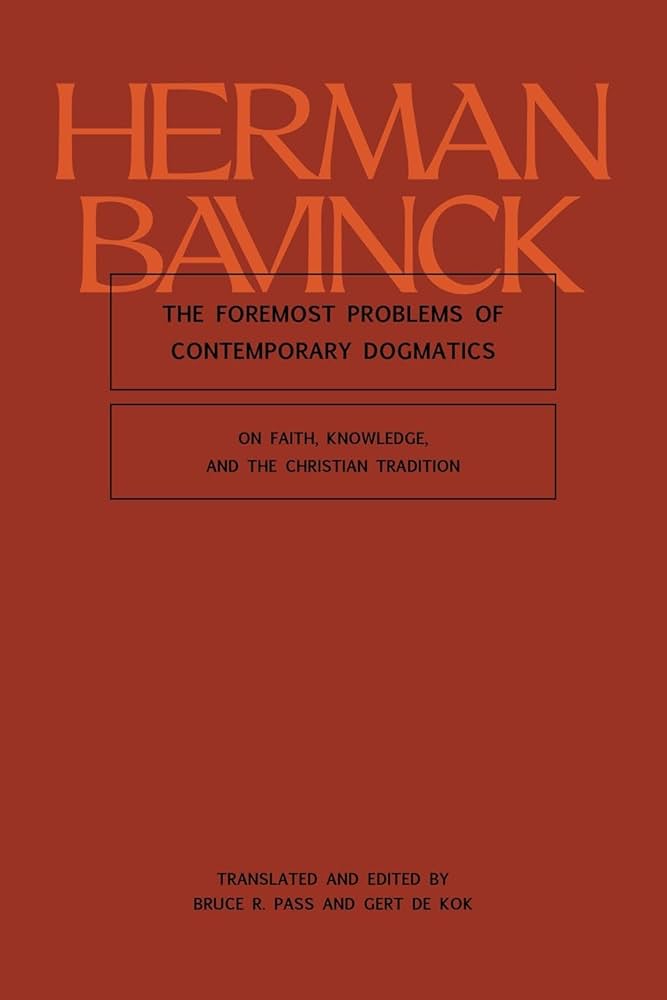
The Foremost Problems of Contemporary Dogmatics is an English translation of a series of lectures delivered by Herman Bavinck at the Free University of Amsterdam after he had moved there in 1902. These previously unpublished lectures have now been made available in English for the first time thanks to the editing and translation by Gert de Kok and Bruce R. Pass. It can be ordered from the publisher, Lexham Press ($44.99), or from booksellers like Amazon ($44.99) and Christian Books ($36.99).
Bruce R. Pass is a noted Bavinck scholar who serves as Adjunct Lecturer in Systematic Theology at Trinity College Queensland (Australian College of Theology) and Honorary Senior Research Fellow at the University of Queensland. Pass is also the author of The Heart of Dogmatics: Christology and Christocentrism in Herman Bavinck and the editor and translator of On Theology: Herman Bavinck’s Academic Orations. Gert de Kok is a pastor at the Dutch Reformed church of Nunspeet and Hulshorst, Netherlands.
The publisher notes that in these essays, “Bavinck identifies the primary challenges confronting Protestant theologians in the early twentieth century. Since the main difficulties do not concern specific heads of doctrine but arise in theological method, Bavinck’s focus narrows to the act of faith. Bavinck demonstrates the necessity of viewing faith as knowledge rather than mere trust, recounting the development of doctrine from the biblical authors through the dawn of the twentieth century. This book provides a unique window into Bavinck’s thought, as he speaks candidly about the limitations and failures of Reformed theology and the relative merits of modern thinkers.”
Henk van den Belt, professor of systematic theology at the Free University Amsterdam and the Theological University of Apeldoorn, remarks: “Herman Bavinck was a theologian of the Holy Spirit par excellence. The hidden power of his teaching lay in the conviction that the Spirit enlightens the mind so that we understand the Scriptures and our own context. We are thankful for this fine translation of his dogmatic lectures in Amsterdam.”
CONTENTS
Introduction
Holy Scripture
The Triumph of Christianity over Paganism
Roman Supernaturalism
The Reformation
Kant, Schleiermacher, Hegel
The Course of Development in Nineteenth-Century Theology
The Most Recent Theology (Part 1)
The Most Recent Theology (Part 2)











